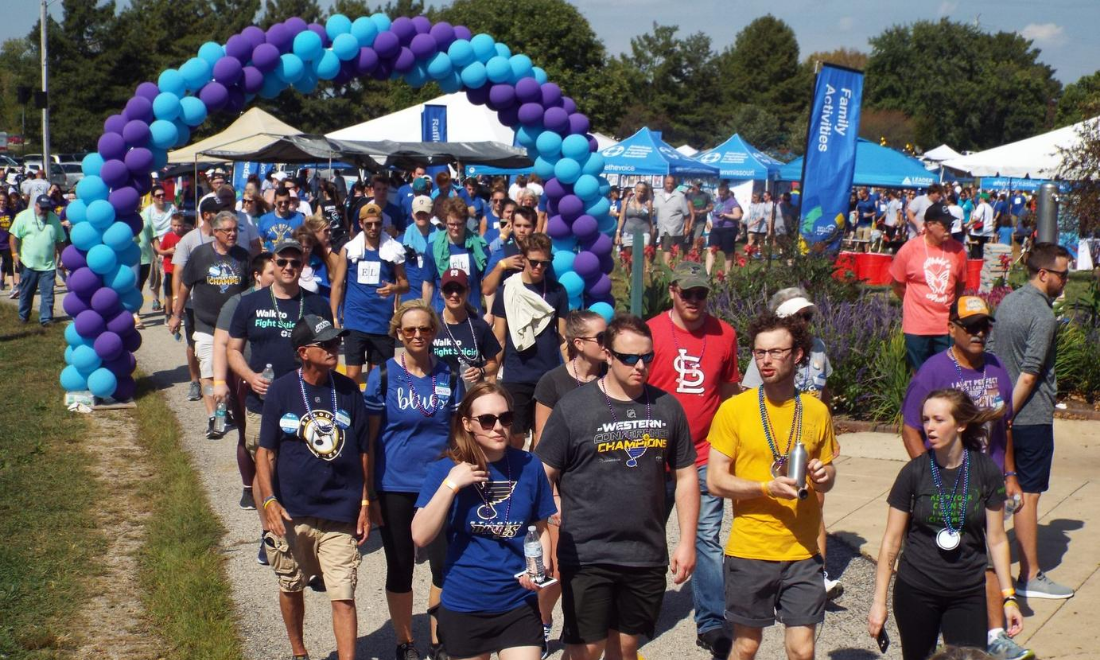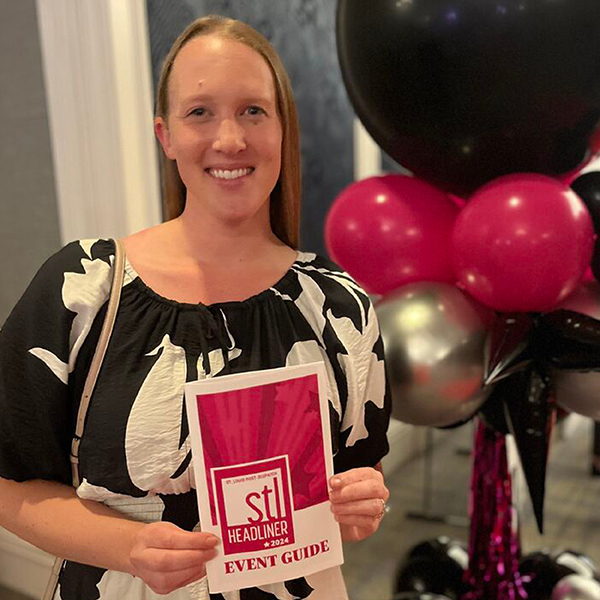Give STL Day Spotlight: American Foundation for Suicide Prevention
By Ranen Miao
Community Investment Intern
With the onset of the COVID-19 pandemic, mass unemployment and social distancing restrictions, a spike in mental illness and suicide has become a salient challenge. That’s the problem the American Foundation for Suicide Prevention (AFSP) is trying to tackle through their work: saving lives and bringing hope to those affected by suicide.
AFSP engages in a four-prong strategy to support those affected by suicide:
- Funding scientific research
- Educating the public about mental health and suicide prevention
- Advocating for public policies in mental health and suicide prevention
- Supporting survivors of suicide loss and those affected by suicide
Amidst the pandemic, AFSP has had to adapt to an increased demand for their services. “The COVID pandemic has affected people’s mental health drastically,” explained Liz Halpern, a Board member for the Foundation. “Those who have never experienced feelings of isolation, anxiety or desperation may be experiencing them as a result of this pandemic. This is the first major health crisis in history where mental health has been a discussion.”
In response, AFSP has changed their educational programming to accommodate social distancing regulations, bringing information to people virtually. These shifts required more funding, which is how Give STL Day was able to help.
“We approached our Give STL Day campaign with sensitivity to the economic impact and the financial anxieties people are facing,” Halpern expressed. “We want our community to know we are here for them through this pandemic, so we focused on the services and resources we have available, rather than our need for funds.” Their strategy worked, helping AFSP raise over $5,000 for operational support.
This funding will help the AFSP work on racial equity in St. Louis and build out their capacity in the region.
“As a national health organization, AFSP is dedicated to addressing the mental health and suicide prevention needs among underrepresented racial and ethnic groups,” said Kellen Wolters, the board’s co-chair.
Applying this equity lens would allow AFSP to better address the needs of specific groups, such as the increase in anxiety and depression amongst the black community or the disproportionately high suicide rates in the Native American community.
In the future, the foundation is seeking to build out their capacity: by building out AFSP’s presence within the St. Louis community. Halpern hopes that schools, workplaces and groups will embrace the educational opportunities of the Foundation and actively engage in suicide prevention.
“We hope everyone will know the Suicide Prevention Lifeline phone number, 800.273.8255,” Halpern concluded. “We also hope that in the future people in St. Louis will be aware of our organization’s mission and the programs we offer, and we hope to be the friendly, familiar faces at community events while providing resources.”
To find out more about the AFSP’s work, make sure to visit their website and follow their Facebook, Twitter, and Instagram.




